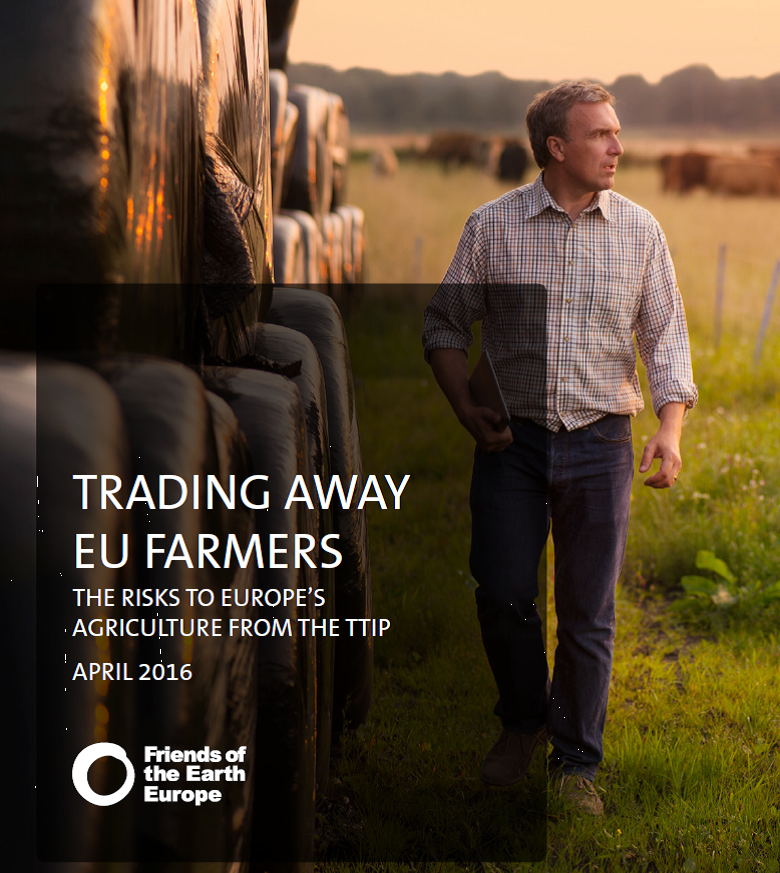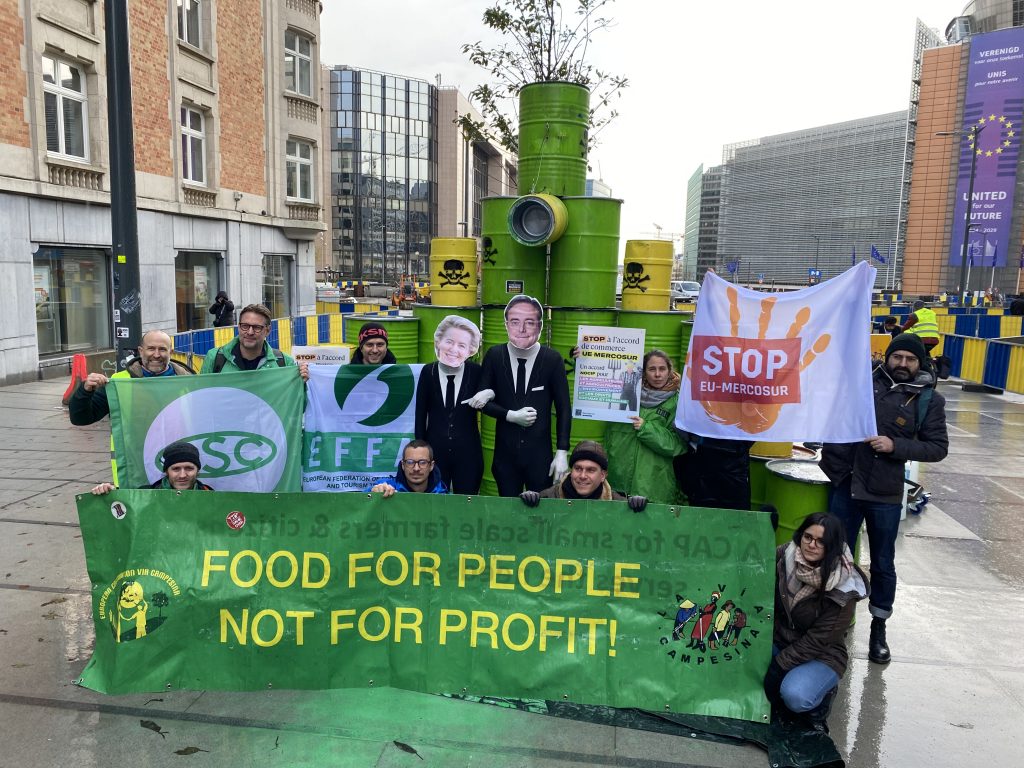
This report shows how the Transatlantic Trade and Investment Partnership (TTIP) deal being negotiated between the EU and the US could spell disaster for European farming.
It reviews modelling studies carried out in the EU and US on the impacts of the TTIP, concluding that the deal will massively increase imports from the US, while having far fewer benefits for EU producers. This is predicted to result in many farmers across the EU facing stronger competition and lower prices, threatening farm businesses across Europe, as well as having negative impacts on rural areas and on consumer interests.
According to the report, the existence of whole EU farm sectors – such as grassland beef production – will be at risk from the agreement. The US Department of Agriculture is predicting falls in the price paid to European farmers in every food category.
The report says that corporate lobby groups, in both the US and Europe, are pushing for greater access to each other’s agricultural markets, with the US in particular targeting Europe’s generally higher safety and animal welfare standards. However, even if EU standards are maintained, increased imports from the US will still flood European markets, ensuring huge export opportunities and profits for food corporations and US factory farms at the expense of European farmers.
In terms of gains for EU agriculture, the report says these will be restricted to just a few sectors, such as cheese, but even these are dependent on the US giving way on ‘non-tariff measures’ that it uses to restrict trade.
The European Commission’s focus on Geographical Indications – products that have a specific geographical origin and have reputations based on origin – is also questionable, according to the report, because the benefits seem likely to be restricted to just three EU countries (France, the UK and Italy) and just a few products such as cheese, champagne and whisky.







